Maybe you applied to a university’s creative writing MFA program and didn’t get in. Maybe you have a life that would never allow for you to take classes. Maybe you already have an MFA and need something new to kickstart your writing. Maybe you can’t afford an MFA. Actually, scratch that one. NOBODY can afford an MFA, even though lots of people DO afford it.
There are lots of reasons you might want to hack an MFA, create your own version of a master’s program that will improve your writing, pump up your reading, get you a gig and get you published. And if you follow this program, I will give you the exact guarantee any MFA program will give you on all fronts: diddly.
And you will work your ass off for that diddly.
Quick Warning
This guide is oriented to those that are serious about this. If you want to hack the MFA because you’re lazy, too strapped for time, are completely unwilling to spend a dime, or because you think the whole idea of an MFA is bunk, that’s totally cool, and this isn’t going to be what you’re looking for.
What we're doing here isn't about "hacking" the MFA in order to compress it into two weeks. We're finding a self-guided way to get an experience that replicates, as closely as possible, an MFA experience.
This is, in some ways, more work than attending class. Because you not only have to attend the class and do the work, you have to set the schedule and do everything for yourself. You’ll need discipline, drive, and dedication.
Build Your Program
Read 'MFA Vs NYC'
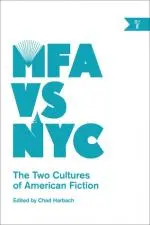 Why this to start? Because we all have preconceived notions about what an MFA is, and like most preconceived notions, those make an ass out of you and me.
Why this to start? Because we all have preconceived notions about what an MFA is, and like most preconceived notions, those make an ass out of you and me.
For every writer that has an MFA, there's a great writer who doesn't. For everyone who loved their MFA experience, there's someone who hated it and found it worthless.
MFA vs. NYC is what I recommend to start . This book gives a range of opinions that will fully explain what a person can expect from an MFA program. It’ll give you a good idea of what exactly an MFA offers.
Check Out Requirements
Just about every MFA program will list required credits and have a course catalog. Look through these. Get an idea what would be required of you. How much reading, how much writing, how much critique, what the balance is. List all the course options you see. Keep track of any details you might be interested in.
Make sure to check out a mix of schools. Check out some ivy league stuff, and look at Wyoming. Look at Iowa, and look at University of the Virgin Islands. Look at grad and undergrad programs. Look abroad. Look for your areas of interest, and look for your areas of weakness.
Ask for Syllabi
A lot of writers you love are probably teaching or probably have taught, and a lot of them have shared syllabi, reading lists, guest lectures, at least some morsel of what you might get if you were able to attend class with them.
Start with the Googling. Look for Junot Diaz, you'll find a condensed Junot Diaz syllabus. Lynda Barry famously puts her assignments on Tumblr. Reading lists are easy to find.
If you can't find what you're looking for, find some writers you love and ask them if they've made any teaching materials they're willing to share. When you ask, be courteous, and get to what you want before the end of the second sentence of your email.
Recommended Texts
Here are a couple resources you could build classes around. I've skipped the well-known stuff, for the most part.
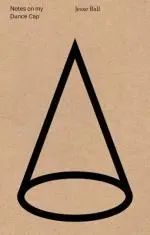 'Notes On My Dunce Cap' by Jesse Ball
'Notes On My Dunce Cap' by Jesse Ball
Jesse Ball teaches some very experimental classes, including a class on lucid dreaming. This sort-of-syllabus will give you some unusual ideas about what a class can look like.
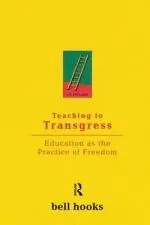 'Teaching to Transgress' by bell hooks
'Teaching to Transgress' by bell hooks
hooks teaches that education can be a transgressive, powerful act. Bonus points because she admits upfront that when she started, she didn't want to be a teacher. Someone coming at this from an atypical angle is just what we need.
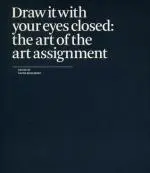 'Draw It with Your Eyes Closed: The Art of the Art Assignment' by Paper Monument
'Draw It with Your Eyes Closed: The Art of the Art Assignment' by Paper Monument
This book will stretch your idea of what an artistic assignment can look like and what its utility can be. You'll find adaptable assignments in here that are unforgettable.
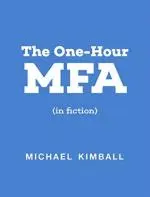 'The One-Hour MFA' by Michael Kimball
'The One-Hour MFA' by Michael Kimball
If you're starting from scratch, this is the way I'd go. It's a quick read, and it provides a lot of the lessons you'll learn in various writing classes in a condensed format.
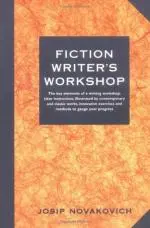 'Fiction Writer's Workshop' by Josip Novakovich
'Fiction Writer's Workshop' by Josip Novakovich
Packed with concrete exercises and ideas. This book could make for an entire class, no problem.
Stretch
As you cement things in, make sure to stretch yourself. Study poetry. It won’t make you a worse noir writer, trust me. Study comics. They’ll teach you about images and sensory detail. Study stand-ups. Study sitcoms. Study something that’s different than what you want to do. Parallel, but different.
Create A Program Structure
Now that you've got an idea what some of these programs look like, create a structure that allows you to finish a course of study in 2 years. How many "classes" are you taking at one time? Which ones go where? How much time should you expect to spend working on this stuff every day?
My advice would be to avoid creating a structure that revolves around your current lifestyle. The idea here is to make a change, do something different. If you’re doing the same thing, you’re not changing anything concrete and physical.
Get up early. Have set times to work on certain things. Go to “class” by going to a certain place the same time(s) every week. I know you’re busy, and you can’t do all these things, but the closer you get to a traditional structure, the more you’re subject to something that feels out of your control, the better off you’ll be.
With this step, we're trying to re-create one of the cornerstones of the MFA experience, which is having a couple years to focus on writing like it's the only thing that matters. For you to do it on your own, it has to become the only thing that matters.
Before You Embark, Have A Talk
Sit your significant other down. Your best friend. Your roommates. Whoever you spend time with, talk to them.
You have to tell them you're doing this, and you need buy-in from them on the level of understanding your plan. Understanding that if you have "class" on Monday evenings, you have class, and you need to commit to that the same way you would if you were meeting in a university somewhere and paying university prices.
This isn't an excuse to shirk your responsibilities. Floors have to be mopped no matter how close you are to a breakthrough in a short story. This is an honest discussion with the people you care about.
Do The Work
Now that we've observed how it's done and put some stuff together, it's time to work.
You've seen some suggestions and ideas for courses. I'm sure you're also capable of finding free online courses, reading lists, and other stuff like that. Let me provide a handful of other must-do's that you might find interesting or helpful.
Shameless Plug #1
LitReactor offers online classes. You probably know that.
What you might not know is how to get the most out of those classes. I’m going to give you some advice.
Treat it like a real class. Because it IS a real class. There are real instructors, real feedback, and real fellow students. If you get in there and screw around, you won’t get anything out of it. It’s like buying a gym membership. Buying the damn thing does squat. Doing squats is where the work gets done. How is it that squats are called “squats” and “squat” also means doing nothing? Whoever decided that has never done squats.
Networking
What a gross word for such a good thing. When we talk about networking, most of us think of slimeball business types who get jobs because of who they know, not what they know, and what they don’t know usually becomes problems for you and me when some knob decides to break your favorite software.
But that’s not what I’m talking about here. What I’m talking about is meeting people.
The writing world is gigantic and spread out all over the place. You’re qualified and able to do a lot of things, but how is anyone else going to know that? If nobody knows you exist, then you're never getting anywhere.
In my world, networking isn’t about worming your way into something you don’t deserve. It’s meeting people who help you, meeting people you can help, and finding a place that feels like home for your work.
It's a crucial part of an MFA, maybe even the most important in a lot of ways. And it's the part you least need a program to do.
Make friends in classes, in-person or online. Arrange readings for a group of authors you enjoy. Go to stuff. Leave the house. Find some people you get along with, and they'll help you get along.
Workshopping
A HUGE part of this education is giving and taking feedback. So important, so difficult sometimes.
Join a writing group in your area. If there isn't one, start one, but try to not take a leadership role just yet.
It's going to be difficult. You're going to be critiquing someone's version of the next big dystopic 3-part series, and you're going to hate it. And if you think you're going to hate that, just imagine how much you're going to hate it when that person turns around and starts telling you where you're falling short.
There are things you can learn, even from a bad group. You learn to shut up. You learn to listen. You learn that a broken clock is right a couple times a day.
You need a workshop.
Shameless Plug #2
LitReactor has an online workshop. The good news here is that if you're interested in the kind of things that LitReactor puts out, you'll likely find people who have similar ideas about writing in the workshop. It's worth your time, worth your effort, and you'll find people who give you some excellent feedback. Not to mention that there's more material to read and provide feedback for than you could ever get through in a lifetime.
Readings
Attending readings is a critical part of the MFA experience. If you have a city within an hour or two, check out when they've got people coming. Go to big readings, go to small readings. The idea is to hear from a lot of different writers, as many as possible.
If there's a college or university anywhere nearby, see if you can make friends with any instructors. Ask if you can sit in on some visiting authors.
If you must, set up a queue of writers you can watch online. It's the least effective way to get it done, but it's better than nothing.
Wrap It Up
You're not done when you finish your coursework. If anything, it's time to start in on the part that lasts the rest of your life.
Make a CV
One of the things that MFA hackers miss out on is a way to effectively demonstrate that though their education might be atypical, it’s still very valuable. Whenever you take a class online, add it to your CV. Whenever you get something published somewhere, add it to your CV. When you make a contact who would be a great reference for you, add that person to a list of references.
I know some of you are saying that you don’t need to do that. You’ve no intention of doing something as vulgar as writing for money. But I’ll encourage you to do it anyway. Something, sometime, will come up. It may not be for money. It may be for something else entirely, something you care about deeply. And when it does, you’ll be ready.
Check for Sponsoring Programs
It’s in vogue for libraries and other institutions to have writer-in-residence programs open to community members, and these are often open to folks who have little or no formal experience. You’ll be in direct competition with people who have experience, but that’s the way the mustard is cut. (What a stupid saying. Nobody cuts mustard. You don’t need to. It’s a sauce, and it’s a seed, both things you don’t cut.)
These programs can be great career-builders, look great on your CV, give you connections in the world of books, and they’ll show your community-mindedness.
Run a Group
Run your own critique group. Not for the sake of getting critique, but for the sake of learning what it means to run a critique group. How do you handle that person in the group who can’t let things go? How do you keep the group on track? How do you manage it?
Volunteer
Try an organization like 826 National or Denver Writes. You’ll get valuable experience designing curricula, critiquing, and working to help writers be the best THEY can be, not the best writer you envision them being.
Whatever writing organization you have, get involved. Whether it's as a teacher or sweeping up, this is a great way to keep yourself in the local writing scene.
Put together your own short story collection
If you were going to teach from a text, what would you want in there? Put it together. Make it real.
Keep track of what you'd want students to learn, what purpose each piece serves.
Create Your Own 15 Lectures
There's a saying in medicine: See One, Do One, Teach One. You need to teach a class too. If you were going to give 15 lectures, one per week for a semester, what would you teach? How would you teach it? What would your Powerpoint slides look like? Put it together. You'll learn something.
Written, audio, video. Make these real.
I know, there's a lot missing here. What would you add? Which books would you use? What do you fancy pants MFA-ers think about this route?

About the author
Peter Derk lives, writes, and works in Colorado. Buy him a drink and he'll talk books all day. Buy him two and he'll be happy to tell you about the horrors of being responsible for a public restroom.








